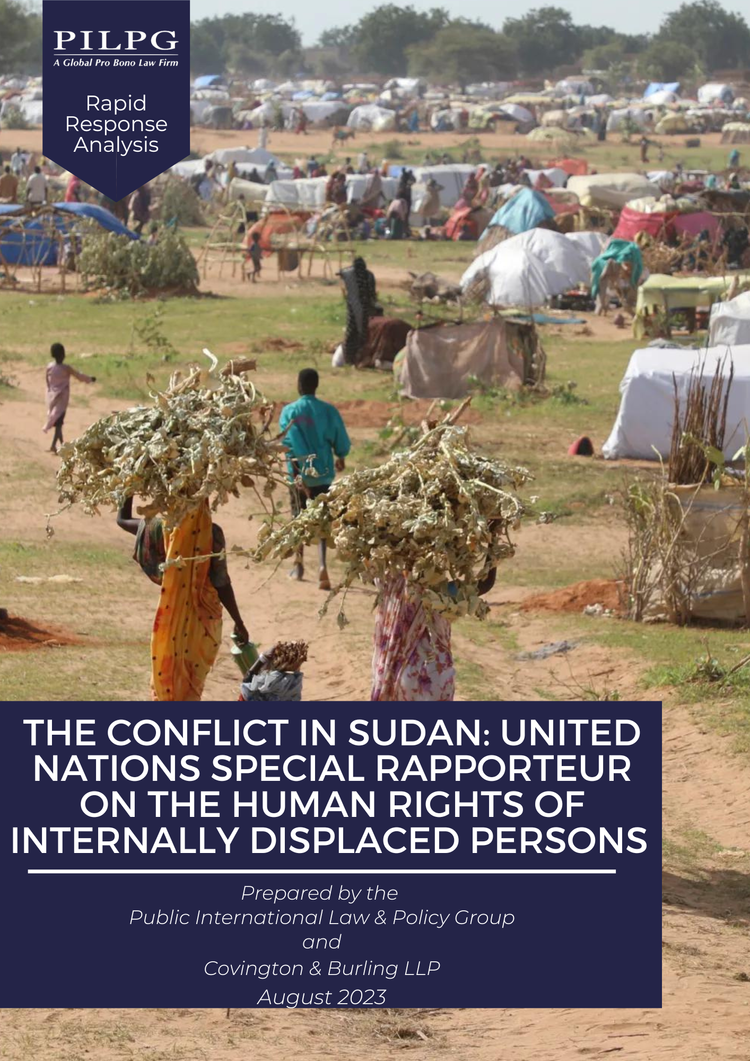In addition to its engagement in past Sudanese peace processes and the current Sudanese context, PILPG has 30 years of experience advising civilians, civil society, and other parties on pursuing accountability for atrocity crimes and how to address the issue of accountability in an international peace negotiation. The resources on this page are meant to provide background on the opportunities for civil engagement in accountability in Sudan, as well as on the process of addressing accountability in negotiations and incorporating transitional justice mechanisms in a peace agreement.
Click on the words below to jump to the section.
Background Reading
Guidelines & Best Practices
Educational Resources
Expert Insights
Interactive Tools
Transitional Justice
Background Reading
This section offers background reading including specific issues and considerations for potential Sudanese transitional justice mechanisms, information on how civilians can utilize the African Union and United Nations infrastructure to pursue justice for atrocity crimes they have witnessed or experienced, and ways to approach the topic of accountability during the 2024 Sudanese peace negotiations.
Guidelines and Best Practices
Educational Material
The following material includes short videos to familiarize civilians with the themes and mechanisms of transitional justice and accountability within international law and its best practices.
Expert Insights
The following videos provide expert insights into accountability, utilizing the United Nations Fact-Finding Mission for Sudan, best practices for civilian documentation of human rights atrocities, and the role of women in transitional justice processes.
Interactive Tools and Resources
The following simulation on negotiating transitional justice in Sri Lanka, offer opportunities to put the knowledge acquired from this page to the test. While the Sudanese and Sri Lanka contexts are unique in their own aspects, the purpose of the negotiation simulation below is not meant to facilitate the discovery of solutions to the issues Sudan is facing on its own, but is meant to provide an opportunity to develop negotiation skills before actually sitting at the negotiation table.















